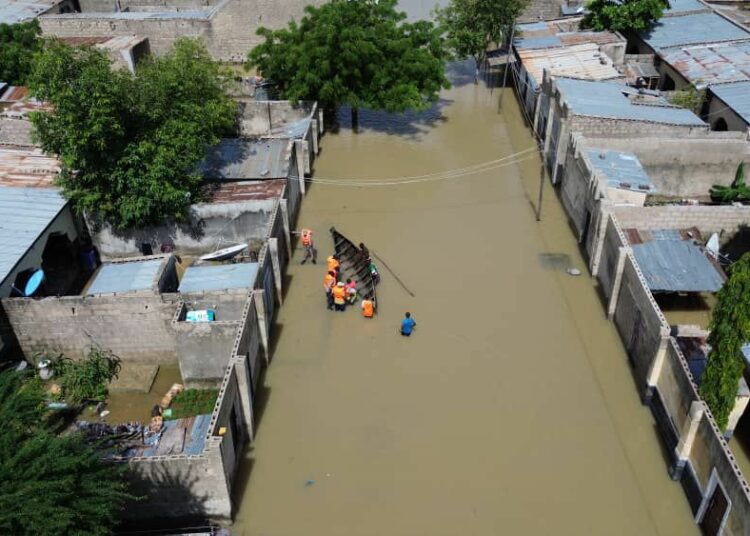Communities affected by the September 9, 2024, flood disaster in Maiduguri metropolis and Jere local government of Borno State have appealed for urgent support by providing potable water, latrines and sanitation tools.
The devastating floods, caused by the collapse of the Alau Dam, have left hundreds of thousands of people in dire need of assistance, and latrines and water facilities have been destroyed.
At a Town Hall meeting yesterday in Maiduguri, organised by SOS Children’s Villages Nigeria (SOSCVN), community leaders, youth and women representatives, government officials, and stakeholders came together to review emergency response interventions and chart a sustainable path forward.
The meeting highlighted the pressing needs of the affected communities, which include water and sanitation, as well as access to clean water, toilets, and sanitation tools to prevent open defecation and reduce the risk of waterborne diseases.
Narrating their ordeal, Bulama Modu, a community leader from the Gangamari area of Jere local government, described the flood’s massive impact on the people, lamenting how water channels were blocked and children’s education was disrupted.
He thanked SOS Children’s Villages and the Borno State Government for their intervention, saying that it had brought relief and renewed hope to the affected.
Another community leader, Bulama Jubrin, raised concerns over water scarcity and worsening hygiene conditions in their area, noting that residents spend up to ₦2,000 per trip for water, sometimes twice daily.
From Almeskin II in Jere local government area, Aisha Ahmed expressed worries over open defecation, attributing it to insufficient toilet facilities and damaged boreholes during the flood.
“One of the major causes of rampant open defecation is that children and even the elderly don’t have regular access to toilets,” she said.
In response to these concerns, the humanitarian manager of the SOS Children’s Villages, Fredson Ogbeche, announced plans to provide three motorised solar-powered boreholes and five segregated toilet blocks for males and females across the four communities comprising Galadima, Abba-Ganaram, Muna, and Almeskin II, which span Maiduguri Metropolis and Jere local government areas.
Speaking earlier, the National Director of SOS Children’s Villages Nigeria ( SOSCVN ), Mr Eghosa Erhumwunse, said the initiative forms part of a broader strategy to protect and empower vulnerable children and families affected by climate-induced emergencies. He recalled the devastating flash floods that followed the collapse of the Alau Dam on September 9, 2024, an incident that displaced over 400,000 people and impacted more than one million others across Borno State.
He said in communities in Jere local government area, families were still grappling with the impact of years of armed conflict when the floods struck, adding that homes were swept away, livelihoods destroyed, and access to basic services severely disrupted.
He said SOS Children’s Villages provided displaced households with relief items, trauma-informed psychosocial support for children, cash assistance to enhance food security, and education kits to enable continuity in learning.
“The organisation also launched long-term interventions, including youth entrepreneurship training and vocational support for caregivers.
“Beneficiaries received startup kits and direct grants to rebuild small businesses and restore lost livelihoods. However, this town hall meeting allows us to hear directly from the communities their needs, their feedback, and their ideas for rebuilding in a more resilient and inclusive way,” he said.





